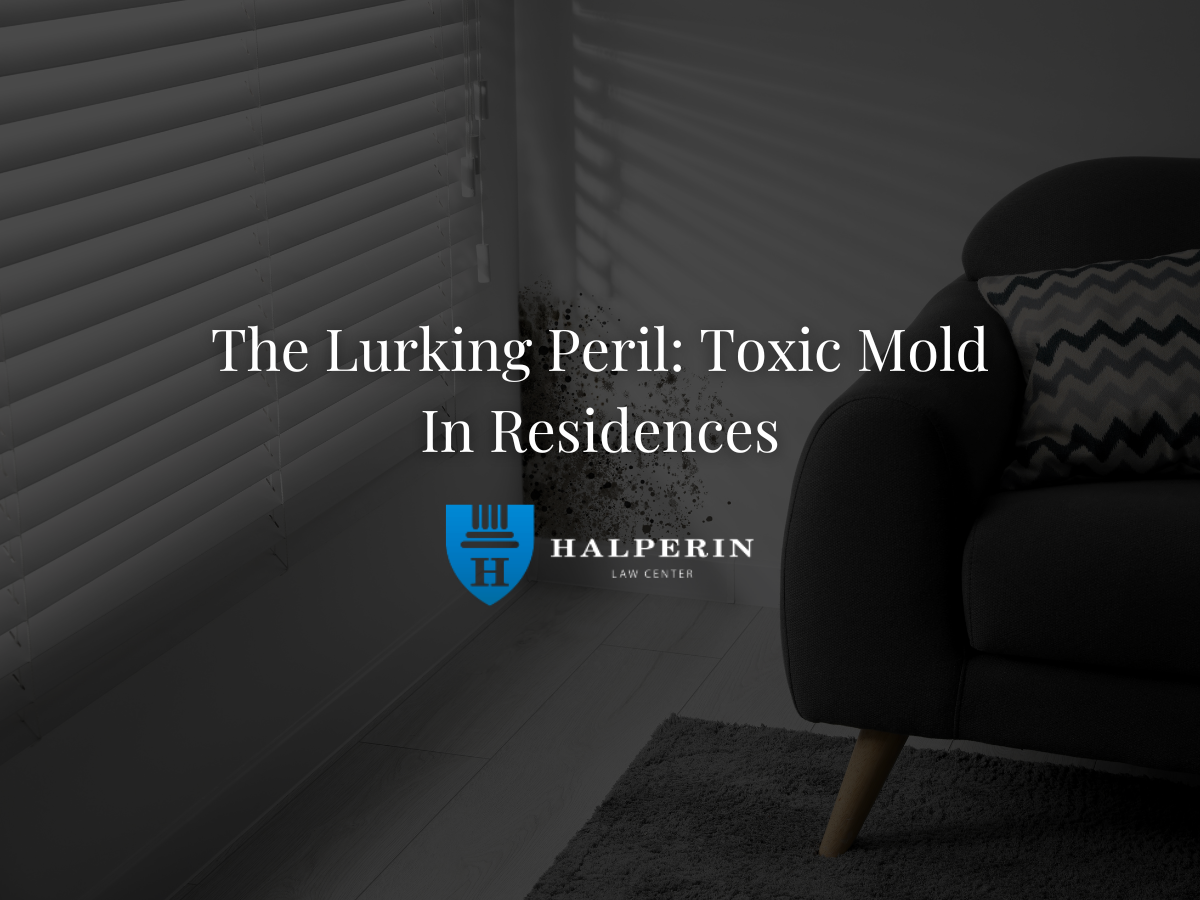One’s home is one’s castle. In the comfort of our homes, we expect safety and security. But what if the air in our home poses a silent threat? Toxic mold, often unseen, can grow in our living spaces, causing serious illness. For tenants grappling with this hazard, obtaining justice can be fraught with challenges. This blog discusses the dangers of toxic mold in homes, the potential recourse available to affected tenants, and the many steps involved in proving a case and navigating the legal system.
Understanding Toxic Mold
Mold is everywhere – – the issue is quantity and type. Mold is commonplace, thriving in damp environments, and often overlooked until a problem becomes visible. Certain types of mold, such as Stachybotrys chartarum (black mold), produce mycotoxins that pose serious health risks to humans. Prolonged exposure to toxic mold can lead to short and long-term respiratory issues, allergies, immune issues, skin irritation, and, in severe cases, neurological symptoms like brain fog or even cancers.
Identifying and Addressing Toxic Mold
Discovering toxic mold in your home can be very stressful. Common signs include musty odors, visible mold growth on walls or ceilings, water stains, recurring leaks, and persistent health issues among occupants. Was there a water leak that wasn’t properly repaired? Was there mold present that wasn’t adequately remediated? When faced with these issues, tenants must act quickly to protect their health and legal rights.
What Steps Should Impacted Tenants Take?
- Notify the Landlord or Property Manager: Upon discovering mold, tenants should promptly inform their landlord or property manager in writing, documenting the issue with photographs and detailed descriptions. Landlords are legally obligated to maintain habitable premises and promptly address mold infestations.
- Seek Professional Assessment: Engage certified mold inspectors to conduct thorough assessments of the premises. They must use control samples and follow all scientific protocols. These professionals can identify the type and extent of mold contamination, providing invaluable documentation for any legal claims.
- Document Health Symptoms: See a physician if you suspect mold is causing your illness. Keep detailed records of any health issues experienced by occupants due to mold exposure. Medical documentation linking symptoms to mold exposure is critical in proving a potential legal case.
- Request Remediation: Tenants have the right to request mold remediation measures from landlords. Remediation typically involves eliminating moisture sources, removing mold-infested materials, and improving ventilation to prevent recurrence. It may require that the landlord move you out of your unit.
Proving a Case: Navigating the Legal System
These cases are known to be difficult because the injured victim must actually scientifically prove that mold exposure caused their injuries. The level of proof required is high and requires legal skill and experience.
The Halperin Law Center has successfully litigated many toxic mold cases. An example of a recent trial victory can be found in Virginia Lawyers Weekly, where our client won over $500,000.00 for health effects and inconvenience. When disputes arise between tenants and landlords regarding mold, seeking legal remedies through the court system may be necessary. Proving a case against a landlord for mold-related damages involves several key steps:
- Gather Evidence: Collect all relevant evidence, including testing and inspection reports, correspondence with the landlord, photographs, medical records, and witness statements. This evidence forms the foundation of the tenant’s case.
- Consult Legal Counsel: Seek guidance from experienced attorneys specializing in mold-related litigation. These professionals can assess the strength of the case, provide legal advice, and represent tenants in negotiations or court proceedings.
- File a Lawsuit: If the landlord fails to address the mold issue or disputes the tenant’s claims, a lawsuit may be necessary to seek compensation for damages.
- Court Proceedings: If your claims cannot be settled outside of court, you may need to proceed to trial. All parties present their arguments and evidence before a jury, which determines liability and damages.
Empowering Tenants in the Fight Against Toxic Mold
Toxic mold infestations in residences significantly threaten tenants’ health, well-being, and finances. They can cause severe and permanent health issues and permanently damage or devalue property. However, affected tenants can seek to hold landlords accountable. By documenting the hazards and seeking the assistance of experienced mold attorneys, tenants can safeguard their rights and secure the justice they deserve. If you believe you have been exposed to toxic mold and have suffered injuries or illness as a result, contact the Halperin Law Center to see if we can help.




